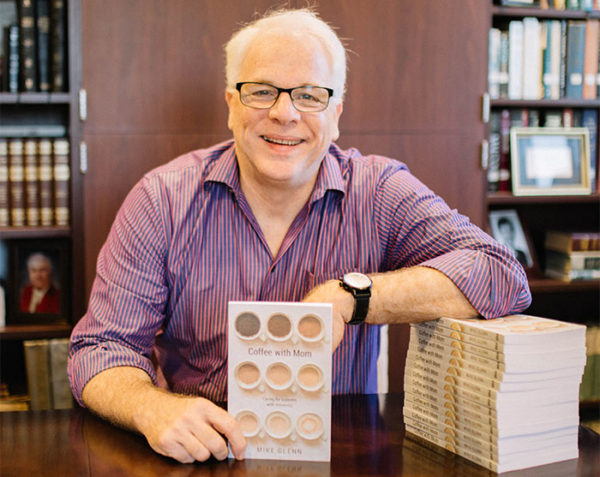Be still and know that I am God” (Ps. 46:10, NIV). God’s word tells us, our pastors tell us and our Bible study leaders tell us to “be still.” We hear it, but many of us do not know how to do it.
“We are not encouraged to (be still) in our society,” said Shirley Richards, corporate director of Samaritan Counseling Center in Birmingham. “We are so bombarded by stimulation. We have color, sound and sights all around us. To sit and be still is almost unheard of.
“Finding time to be still is not going to happen,” she said. “We have to make it happen … and it sometimes means listening rather than praying with a list of requests.”
But learning to be still is important for a person’s spiritual health, which in turn affects the person’s overall health, Richards said.
“If all areas are not balanced, then most likely there is something spiritually that is out of kilter.”
Experts are increasingly agreeing that spiritual health is part of a person’s total wellness.
“There is a connection between faith and health,” said Randal Walton, senior director of pastoral care at Baptist Health System. “(Research) is finding that people of faith stay healthier and do better in crises,” he said.
“I think Scripture talks about (the body and spirit being) interconnected, and medicine is beginning to recognize this,” Walton said. “A sense of stewardship about our lives holistically (is taking place),” he said. Along with taking care of the emotional and physical aspects of the body, it is also vital to be “spiritually healthy.”
Taking care of oneself includes: slowing down, eating right, exercising and listening to the doctor. It also means practicing prayer, nurturing relationships within a faith group, allowing times of solitude and studying Scripture.
“It is also important to daily do whatever is lifegiving and nurturing individually,” Richards said, noting examples such as listening to music or going for a walk.
“Spiritual growth is a process,” she said. “Hallmarks of spiritual wholeness and wellness come when we are able to trust ourselves to God and God’s work in our lives. We are able to allow God’s hand and love to be manifested in our lives and the lives of other people as well as honor who we are as creations of God. Then we have spiritual health.”
Walton said as people see their lives as gifts from God, they will want to nurture them. The church also is playing a role in promoting holistic health through parish
nursing programs.
It is estimated that in the past 15 years more than 1,000 churches and synagogues in the United States have hired nurses. Parish nurses help with in-home care and offer congregational workshops on topics such as diet, exercise or health screenings.
Alabama Woman’s Missionary Union (WMU) has trained several parish nursing groups throughout the state. For more information about Alabama WMU’s parish nursing effort, contact Barbara Owen at 1-800-264-1225. (RNS contributed.)
Spiritual health foundation to overall wellness
Related Posts

FDA, researchers seek methods of early detection of Alzheimer’s
October 1, 2024
A new blood test could help doctors diagnose Alzheimer’s disease more accurately in a primary care setting, leading to crucial

Alzheimer’s, dementia: Pastor shares lessons learned
August 12, 2019
As a minister for more than 40 years, Mike Glenn walked through the valley of dementia and Alzheimer’s disease with

Shame isolates, destroys community, psychiatrist says
October 13, 2016
Nobody needs a psychiatrist to explain what shame feels like — we all know, said Curt Thompson, a noted psychiatrist
Prenatal classes catalyst for new life, faith, churches
January 22, 2015
The young woman gingerly crawls off a motor scooter, grateful for the ride. Before, Kalliyan Seng could make the two-mile

Share with others: